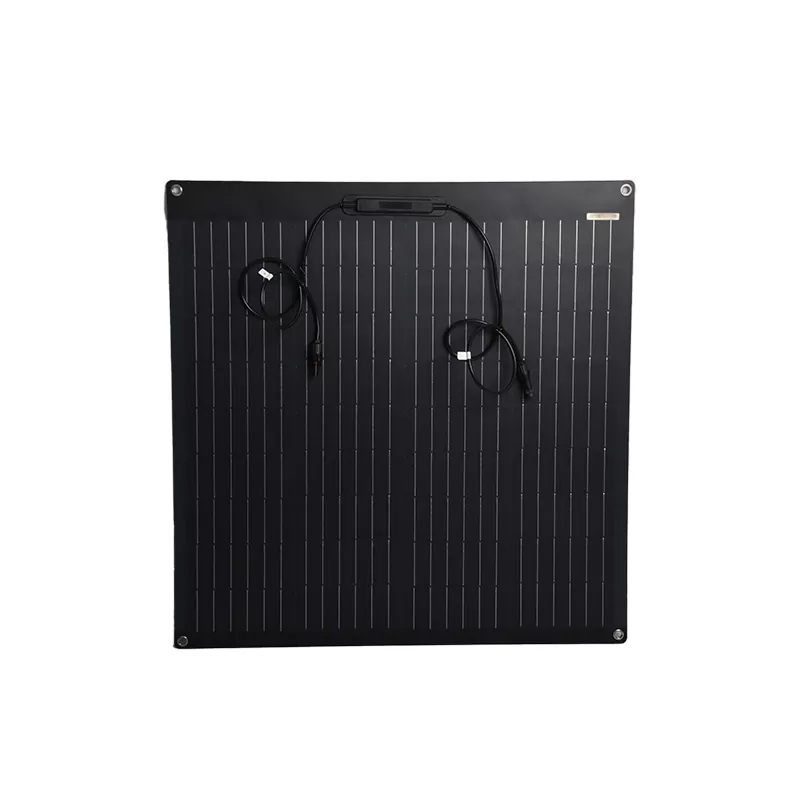Some considerations and limitations when using flexible solar panels
2023-10-17
Flexible solar panels, also known as flexible solar modules or thin-film solar panels, are a type of solar photovoltaic technology designed to be lightweight, durable, and adaptable to various surfaces. Unlike traditional rigid solar panels, flexible solar panels are made using thin and lightweight materials, which offer several advantages:
1. Flexibility: As the name suggests, these panels are highly flexible and can be bent to fit curved or irregular surfaces. This makes them suitable for applications where rigid panels cannot be used, such as on boats, RVs, vehicles, backpacks, and even clothing.
2. Lightweight: Flexible solar panels are significantly lighter than traditional glass-and-metal solar panels, which is advantageous for portable and mobile applications. Their lightweight design also reduces the strain on the mounting structure.
3. Durability: Many flexible solar panels are designed to be durable and weather-resistant. They are often encapsulated in materials like ETFE (ethylene tetrafluoroethylene) or PET (polyethylene terephthalate) to protect the solar cells from moisture and physical damage.
4. Versatility: These panels can be integrated into a wide range of applications, including solar-powered backpacks, rollable solar mats, flexible solar roofing, and more. Their versatility allows for creative and customized solar solutions.
5. Low-Light Performance: Some types of flexible solar panels perform better than traditional crystalline silicon panels in low-light conditions. This can be advantageous for regions with variable weather patterns.
6. Portability: Due to their flexibility and lightweight nature, flexible solar panels are easily portable. They can be rolled up or folded for transport and then deployed when needed, making them ideal for camping, hiking, and other outdoor activities.
7. Easy Installation: Installation is often straightforward, and many flexible solar panels come with grommets or adhesive backings that make it easy to attach them to various surfaces.
8. Aesthetics: Flexible solar panels can be visually appealing when integrated into certain applications, such as architectural designs, because they can blend with the contours of buildings or structures.
However, there are some considerations and limitations when using flexible solar panels:
1. Efficiency: Flexible solar panels generally have lower energy conversion efficiency compared to traditional crystalline silicon panels. While they are improving, they may not be the best choice for applications where maximum efficiency is critical.
2. Cost: Flexible solar panels can be more expensive per watt compared to traditional panels, so cost-effectiveness should be carefully considered.
3. Fragility: Despite being durable, flexible panels are still susceptible to damage from punctures or sharp objects. Care must be taken during installation and use.
4. Temperature Sensitivity: Flexible panels may experience reduced efficiency as temperatures increase. Adequate ventilation is important to dissipate heat.
5. Warranty: Check the manufacturer's warranty to ensure you have coverage in case of defects or issues with the flexible solar panel.
Flexible solar panels are a versatile and innovative option for harnessing solar energy in unique and space-constrained applications. When selecting flexible solar panels, consider your specific needs, installation requirements, and budget to determine if they are the right choice for your project or portable power needs.



